WHS harmonisation: developments in three states
Progress towards harmonisation of Australia’s work health and safety laws continues with new mining laws to commence in NSW soon, two new regulations now underway in South Australia, and the public comment period for WA’s harmonisation bill to end soon.
NSW mining laws start next month
The NSW mining industry will be subject to new WHS laws from 1 February, according to the NSW department of Trade & Investment (DTI).
The Work Health and Safety (Mines) Act 2013 and Work Health and Safety (Mines) Regulation 2014 will apply to all mining workplaces in NSW.
These legal instruments support the Work Health and Safety Act 2011 (NSW) and Work Health and Safety Regulation 2011 (NSW) while providing additional provisions for issues unique to mines.
They are based on the national model WHS Regulations for mining and the additional tri-state mining provisions agreed by New South Wales, Queensland and Western Australia.
The following laws will be replaced by the new WHS (Mines) legislation when it commences next month:
- Coal Mine Health and Safety Act 2002
- Coal Mine Health and Safety Regulation 2006
- Mine Health and Safety Act 2004
- Mine Health and Safety Regulation 2007
The department has described the new laws as another important step towards the harmonisation of WHS laws for mining in Australia.
Further information is available via the NSW Trade & Investment website.
Regulations have commenced and expired (SA)
SafeWork SA has provided an update on the Work Health and Safety Regulations 2012 (SA): On 1 January, two new regulations commenced and five transitional provisions expired.
The following regulations have commenced:
- Regulation 488 – Recognition of asbestos removal licences in other jurisdictions
- Regulation 675W – Quarterly reports
The following transitional provisions have expired:
- Regulation 724(7) and (8) – Licence to carry out high risk work
- Regulation 727 – Asbestos assessors licence
- Regulation 728 – Asbestos removal supervisors and asbestos removal workers
- Regulation 729 – Applications for asbestos removal licences or asbestos assessor licences
- Regulation 731 – Duties of designers
In addition, the following transitional provisions will continue to apply:
- Regulation 726 – Application of regulations 475 and 476 (air monitoring)
- Regulation 736 – Classification and labelling under GHS
- Regulation 737 – Roll-over protection on tractors
- Regulations that commence 1 January 2016
- Regulation 347 – Manifest of hazardous chemicals
- Regulation 348 – Regulator must be notified if manifest quantities to be exceeded
Further information on the transitional arrangements to support industry, business and workers to implement the WHS Regulations 2012 (SA) is available via the SafeWork SA website.
WA’s harmonisation bill: comment period ending
WorkSafe WA has issued a reminder that the public comment period for Western Australia’s modified version of the Model Work Health and Safety Bill closes on January 30.
The Work Health and Safety Bill 2014 (WA) was tabled in WA Parliament in October. It contains the core provisions of the harmonisation legislation developed by Safe Work Australia for implementation across Australia, including the primary duty of care of the person conducting a business or undertaking (PCBU) and due diligence obligations for officers, but with local modifications.
If enacted the bill will replace the Occupational Safety and Health Act 1984 (WA) and align Western Australia’s work health and safety laws with those in other jurisdictions, except for Victoria whose government has resisted the harmonisation process.
The WHS Bill 2014 (WA) has been released as a ‘Green Bill’, which is a bill for consultation purposes that does not necessarily represent the government’s final position.
Comment is sought on specific clauses of the WHS Bill as well as the application of the draft legislation in relation to a particular job, workplace or industry or specific WHS issues.
Submissions must be sent to WorkSafe WA, which is conducting the consultation process on behalf of the government, using the prescribed template.
Submissions can be emailed to WHSGreenBill@commerce.wa.gov.au or sent to Locked Bag 14, Cloisters Square, Western Australia 6850 (Note: envelopes should be marked ‘TO THE ATTENTION OF THE EXECUTIVE DIRECTOR WORKSAFE – SUBMISSION ON WHS BILL 2014’).
Further information: Green Bill and public comment process
This article was originally posted on Workplace OHS
Contact Us
Zenergy News

Tel. No.
1300 333 400
Our Offices
Sydney
25 Brisbane Street
Surry Hills NSW 2010
Melbourne
Level 23, Tower 5
Collins Square
727 Collins Street
Melbourne VIC 3008
Brisbane
Level 54
111 Eagle Street
Brisbane QLD 4000
Perth
108 St Georges Terrace
Perth WA 6000
Services
Quick Links
About Us






